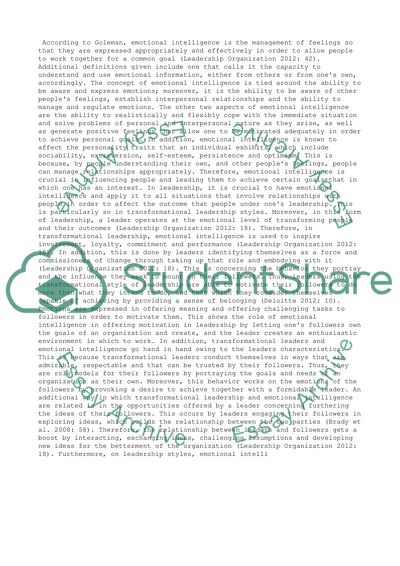Cite this document
(“Emotional Intelligence Essay Example | Topics and Well Written Essays - 1250 words”, n.d.)
Retrieved from https://studentshare.org/management/1454225-emotional-intelligence
Retrieved from https://studentshare.org/management/1454225-emotional-intelligence
(Emotional Intelligence Essay Example | Topics and Well Written Essays - 1250 Words)
https://studentshare.org/management/1454225-emotional-intelligence.
https://studentshare.org/management/1454225-emotional-intelligence.
“Emotional Intelligence Essay Example | Topics and Well Written Essays - 1250 Words”, n.d. https://studentshare.org/management/1454225-emotional-intelligence.


